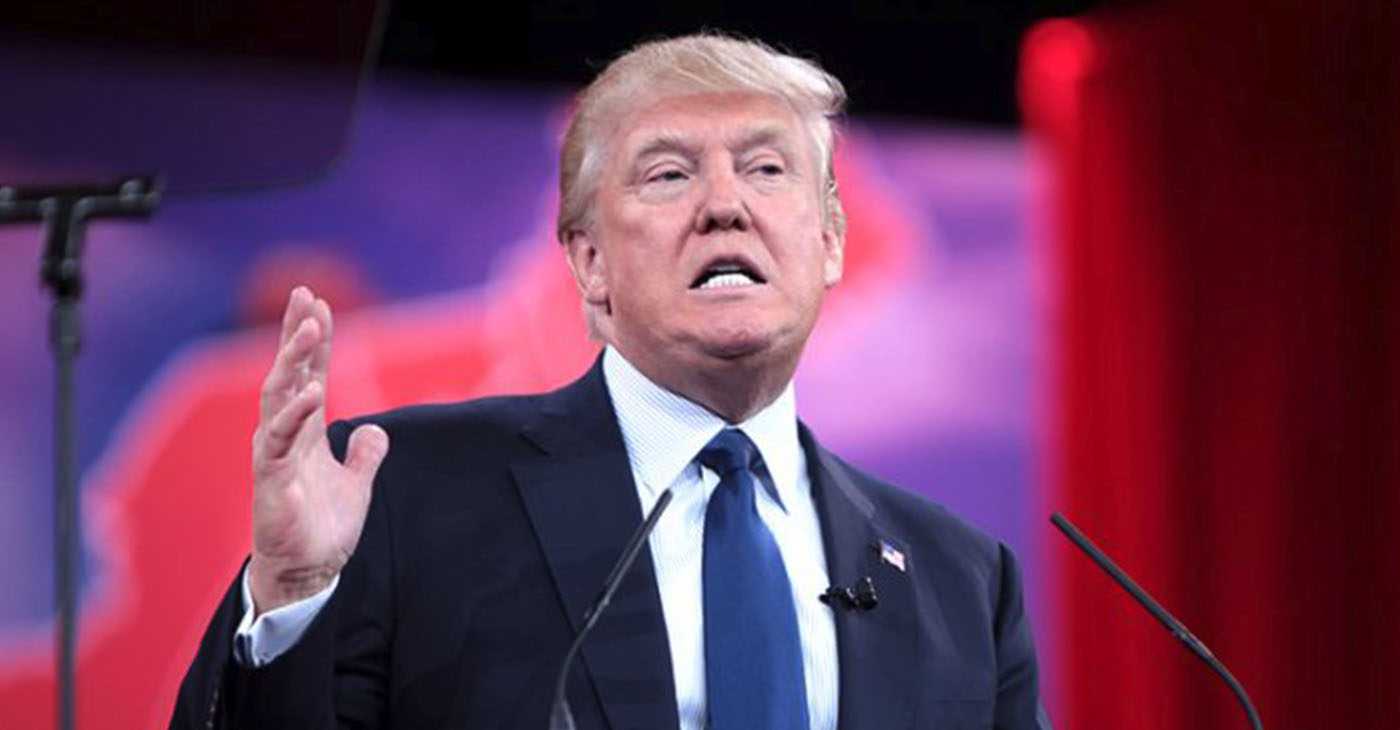#NNPA BlackPress
OP-ED: Big Insurance Must Help End Surprise Medical Billing
NNPA NEWSWIRE — Known as “surprise medical billing,” these unexpected costs arise when a patient goes to a hospital for emergency or non-emergency care, only to find out afterwards that one of the medical providers who administered care was not covered in the patient’s insurance network.
By Dr. Benjamin F. Chavis, Jr., National Newspaper Publishers Association President and CEO
It is a serious financial problem that far too many African Americans – from impoverished individuals to working-class families — face these days in the bewilderingly complicated health-care market: Getting hit with an unexpected bill after a hospital stay or visit to the emergency room.
Known as “surprise medical billing,” these unexpected costs arise when a patient goes to a hospital for emergency or non-emergency care, only to find out afterwards that one of the medical providers who administered care was not covered in the patient’s insurance network.
This outrageous situation benefits one group and one group alone: powerful insurance executives, who have managed to get off the financial hook for such bills, even as insurers shrink insurance coverage networks to wring more and more profits out of the system.
But this predatory practice is overwhelming to a family already dealing with the emotional and financial burdens of a medical crisis, typically adding thousands of dollars in unexpected expenses that can wipe out savings accounts or otherwise strain tight household budgets.
So, what can be done to stop and end surprise medical billing?
The good news is that both Republicans and Democrats in Congress agree that legislation is needed to protect patients against unexpected medical charges. But as with many complicated issues confronting Congress, lawmakers have been divided on the details of such legislation.
Part of the paralysis in Congress stems from confusion and disinformation, as insurance executives and their allies try to frame the debate to their advantage.
When Congress tried to address the issue last year, for example, the insurance lobbying machine swung into action, attempting to place the blame for surprise bills on out-of-network medical providers who end up having to charge patients when insurers refuse to cover a medical bill.
Big insurance almost got its way in that legislative debate when a handful of lawmakers threw support behind a legislative proposal that would shield insurance companies from paying what they ought to pay. The legislation, championed by Sen. Lamar Alexander (R-Tenn.), specifically called for setting benchmarked rates for out-of-network medical providers.
But far from solving the problem, this approach would make matters worse. It not only frees insurers from their responsibilities. It fails to compensate providers for the cost of the care that they actually provide. And that, in turn, means either patients will get stuck with the bill or medical providers will have to absorb big losses that ultimately jeopardize their ability to stay in business.
Fortunately, the proposed bill stalled after the medical community warned that the benchmarked rate favored by the insurance industry would allow insurers to exert a new troubling level of control over health-care prices and the larger health-care delivery system.
Now, as Congress begins to take up the issue once again, health insurance companies that evaded significant scrutiny last year seem to be drawing close scrutiny now, both inside and outside of Washington.
Speaking to a group of faith leaders and policymakers in South Carolina, an important stop for the 2020 Democratic presidential primary, Reverend Al Sharpton criticized the surprise medical billing legislation backed by insurers and stressed the urgent need to deal with the continued lack of access to adequate health insurance coverage for minority communities.
“Washington is getting it wrong,” he wrote in an opinion piece published after his South Carolina trip, adding that the bill introduced by “Sen. Lamar Alexander (R-Tenn.) to `solve’ the surprise billing problem would literally insulate insurance companies from covering these costs, at a time when profits for insurance companies have reached record highs.”
In the U.S. House of Representatives, Ways and Means Committee Chairman Richard Neal (D-Ma.) predicted that health insurers would do little more than look out for their own interest if they were given the authority to set rates for out-of-network providers.
“My concern with giving too much weight to such a benchmark rate is that we already know insurers are looking for any way they can to pay the least amount possible,” he said. “They will work to push those rates down, regardless of what it means for community providers like physicians, hospitals, and our constituents who they employ.”
There were similar concerns in the U.S. Senate, where Senator Bill Cassidy (R-La.) warned that insurers began gaming the system in California once benchmarking rates became the law of the land in that state in 2016.
“Insurance companies cancel contracts and then they have the negotiating power and they establish” their own rate, he said, adding that such benchmarking of rates would likely put hospitals “out of business.”
It’s worth noting that lawmakers are raising such concerns despite the considerable backing the insurance-industry legislation has had from two powerful lawmakers: Senator Alexander, chairman of the Senate Committee on Health, Education, Labor, and Pensions; and Frank Pallone, the chairman of the House Energy and Commerce Committee, whose jurisdiction includes health care issues.
More than that, Senator Cassidy introduced legislation that would eliminate surprise medical billing by establishing an arbitration system between insurers and providers — rather than sticking the disputed medical charges to patients. And that legislation is gaining strong bipartisan support, as is a similar bill in the House that is being advanced Representative Phil Roe (R-TN) and Representative Raul Ruiz (D-CA), both of whom are doctors.
Surprise medical billing is a problem we can no longer ignore, particularly at a time when roughly two-thirds of Americans say that they are concerned about their ability to pay for an unexpected medical expense for themselves or for a family member. And this practice it is especially hard on African Americans and other people of color in the U.S. who already face significant barriers to health care and who generally receive lower quality of care than the rest of the nation.
Congress has an opportunity to make things right by ending the practice of surprise medical billing. Black Americans and all others in America shouldn’t be saddled with exorbitant bills that they had no reason to expect – and that impose an unjust financial burden.
Dr. Benjamin F. Chavis, Jr. is President and CEO of the National Newspaper Publishers Association (NNPA) and can be reached at dr.bchavis@nnpa.org
#NNPA BlackPress
Recently Approved Budget Plan Favors Wealthy, Slashes Aid to Low-Income Americans
BLACKPRESSUSA NEWSWIRE — The most significant benefits would flow to the highest earners while millions of low-income families face cuts
By Stacy M. Brown
BlackPressUSA.com Senior National Correspondent
The new budget framework approved by Congress may result in sweeping changes to the federal safety net and tax code. The most significant benefits would flow to the highest earners while millions of low-income families face cuts. A new analysis from Yale University’s Budget Lab shows the proposals in the House’s Fiscal Year 2025 Budget Resolution would lead to a drop in after-tax-and-transfer income for the poorest households while significantly boosting revenue for the wealthiest Americans. Last month, Congress passed its Concurrent Budget Resolution for Fiscal Year 2025 (H. Con. Res. 14), setting revenue and spending targets for the next decade. The resolution outlines $1.5 trillion in gross spending cuts and $4.5 trillion in tax reductions between FY2025 and FY2034, along with $500 billion in unspecified deficit reduction.
Congressional Committees have now been instructed to identify policy changes that align with these goals. Three of the most impactful committees—Agriculture, Energy and Commerce, and Ways and Means—have been tasked with proposing major changes. The Agriculture Committee is charged with finding $230 billion in savings, likely through changes to the Supplemental Nutrition Assistance Program (SNAP), also known as food stamps. Energy and Commerce must deliver $880 billion in savings, likely through Medicaid reductions. Meanwhile, the Ways and Means Committee must craft tax changes totaling no more than $4.5 trillion in new deficits, most likely through extending provisions of the 2017 Tax Cuts and Jobs Act. Although the resolution does not specify precise changes, reports suggest lawmakers are eyeing steep cuts to SNAP and Medicaid benefits while seeking to make permanent tax provisions that primarily benefit high-income individuals and corporations.
To examine the potential real-world impact, Yale’s Budget Lab modeled four policy changes that align with the resolution’s goals:
- A 30 percent across-the-board cut in SNAP funding.
- A 15 percent cut in Medicaid funding.
- Permanent extension of the individual and estate tax cuts from the 2017 Tax Cuts and Jobs Act.
- Permanent extension of business tax provisions including 100% bonus depreciation, expense of R&D, and relaxed limits on interest deductions.
Yale researchers determined that the combined effect of these policies would reduce the after-tax-and-transfer income of the bottom 20 percent of earners by 5 percent in the calendar year 2026. Households in the middle would see a modest 0.6 percent gain. However, the top five percent of earners would experience a 3 percent increase in their after-tax-and-transfer income.
Moreover, the analysis concluded that more than 100 percent of the net fiscal benefit from these changes would go to households in the top 20 percent of the income distribution. This happens because lower-income groups would lose more in government benefits than they would gain from any tax cuts. At the same time, high-income households would enjoy significant tax reductions with little or no loss in benefits.
“These results indicate a shift in resources away from low-income tax units toward those with higher incomes,” the Budget Lab report states. “In particular, making the TCJA provisions permanent for high earners while reducing spending on SNAP and Medicaid leads to a regressive overall effect.” The report notes that policymakers have floated a range of options to reduce SNAP and Medicaid outlays, such as lowering per-beneficiary benefits or tightening eligibility rules. While the Budget Lab did not assess each proposal individually, the modeling assumes legislation consistent with the resolution’s instructions. “The burden of deficit reduction would fall largely on those least able to bear it,” the report concluded.
#NNPA BlackPress
A Threat to Pre-emptive Pardons
BLACKPRESSUSA NEWSWIRE — it was a possibility that the preemptive pardons would not happen because of the complicated nature of that never-before-enacted process.

By April Ryan
President Trump is working to undo the traditional presidential pardon powers by questioning the Biden administration’s pre-emptive pardons issued just days before January 20, 2025. President Trump is seeking retribution against the January 6th House Select Committee. The Trump Justice Department has been tasked to find loopholes to overturn the pardons that could lead to legal battles for the Republican and Democratic nine-member committee. Legal scholars and those closely familiar with the pardon process worked with the Biden administration to ensure the preemptive pardons would stand against any retaliatory knocks from the incoming Trump administration. A source close to the Biden administration’s pardons said, in January 2025, “I think pardons are all valid. The power is unreviewable by the courts.”
However, today that same source had a different statement on the nuances of the new Trump pardon attack. That attack places questions about Biden’s use of an autopen for the pardons. The Trump argument is that Biden did not know who was pardoned as he did not sign the documents. Instead, the pardons were allegedly signed by an autopen. The same source close to the pardon issue said this week, “unless he [Trump] can prove Biden didn’t know what was being done in his name. All of this is in uncharted territory. “ Meanwhile, an autopen is used to make automatic or remote signatures. It has been used for decades by public figures and celebrities.
Months before the Biden pardon announcement, those in the Biden White House Counsel’s Office, staff, and the Justice Department were conferring tirelessly around the clock on who to pardon and how. The concern for the preemptive pardons was how to make them irrevocable in an unprecedented process. At one point in the lead-up to the preemptive pardon releases, it was a possibility that the preemptive pardons would not happen because of the complicated nature of that never-before-enacted process. President Trump began the threat of an investigation for the January 6th Select Committee during the Hill proceedings. Trump has threatened members with investigation or jail.
#NNPA BlackPress
Reaction to The Education EO
BLACKPRESSUSA NEWSWIRE — Meanwhile, the new Education EO jeopardizes funding for students seeking a higher education. Duncan states, PellGrants are in jeopardy after servicing “6.5 million people” giving them a chance to go to college.

By April Ryan
There are plenty of negative reactions to President Donald Trump’s latest Executive Order abolishing the Department of Education. As Democrats call yesterday’s action performative, it would take an act of Congress for the Education Department to close permanently. “This blatantly unconstitutional executive order is just another piece of evidence that Trump has absolutely no respect for the Constitution,” said Rep. Maxine Waters (D-CA) who is the ranking member on the House Financial Services Committee. “By dismantling ED, President Trump is implementing his own philosophy on education, which can be summed up in his own words, ‘I love the poorly educated.’ I am adamantly opposed to this reckless action, said Rep. Bobby Scott who is the most senior Democrat on the House Education and Workforce Committee.
Morgan State University President Dr. David Wilson chimed in saying “I’m deeply concerned about efforts to shift federal oversight in education back to the states, particularly regarding equity, justice, and fairness. History has shown us what happens when states are left unchecked—Black and poor children are too often denied access to the high-quality education they deserve. In 1979 then President Jimmy Carter signed a law creating the Department of Education. Arne Duncan, former Obama Education Secretary, reminds us that both Democratic and Republican presidents have kept education a non-political issue until now. However, Duncan stressed Republican presidents have contributed greatly to moving education forward in this country.
During a CNN interview this week Duncan said during the Civil War President Abraham “Lincoln created the land grant system” for colleges like Tennessee State University. “President Ford brought in IDEA.” And “Nixon signed Pell Grants into law.” In 2001, the No Child Left Behind Act was signed into law by President George W. Bush which increased federal oversight of schools through standardized testing. Meanwhile, the new Education EO jeopardizes funding for students seeking higher education. Duncan states, PellGrants are in jeopardy after servicing “6.5 million people” giving them a chance to go to college. Wilson details, “that 40 percent of all college students rely on Pell Grants and student loans.”
Rep. Alma Adams (D-NC) says this Trump action “impacts students pursuing higher education and threatens 26 million students across the country, taking billions away from their educational futures. Meanwhile, During the president’s speech in the East Room of the White House Thursday, Trump criticized Baltimore City, and its math test scores with critical words. Governor West Moore, who is opposed to the EO action, said about dismantling the Department of Education, “Leadership means lifting people up, not punching them down.”
-

 #NNPA BlackPress4 weeks ago
#NNPA BlackPress4 weeks agoTarget Takes a Hit: $12.4 Billion Wiped Out as Boycotts Grow
-

 Activism4 weeks ago
Activism4 weeks agoUndocumented Workers Are Struggling to Feed Themselves. Slashed Budgets and New Immigration Policies Bring Fresh Challenges
-

 Arts and Culture4 weeks ago
Arts and Culture4 weeks agoBeverly Lorraine Greene: A Pioneering Architect and Symbol of Possibility and Progress
-

 Activism4 weeks ago
Activism4 weeks agoOakland Post: Week of March 5 – 11, 2025
-

 #NNPA BlackPress2 weeks ago
#NNPA BlackPress2 weeks agoRev. Dr. Jamal Bryant’s Black Church Target Boycott Mobilizes 150,000
-

 Activism1 week ago
Activism1 week agoWe Fought on Opposite Sides of the Sheng Thao Recall. Here’s Why We’re Uniting Behind Barbara Lee for Oakland Mayor
-

 #NNPA BlackPress4 weeks ago
#NNPA BlackPress4 weeks agoTrump Moves to Dismantle Education Department
-

 #NNPA BlackPress4 weeks ago
#NNPA BlackPress4 weeks agoFighting to Keep Blackness





















































Pingback: OP-ED: Big Insurance Must Help End Surprise Medical Billing – The Digital Informer
Pingback: Panafricanmedia Networks